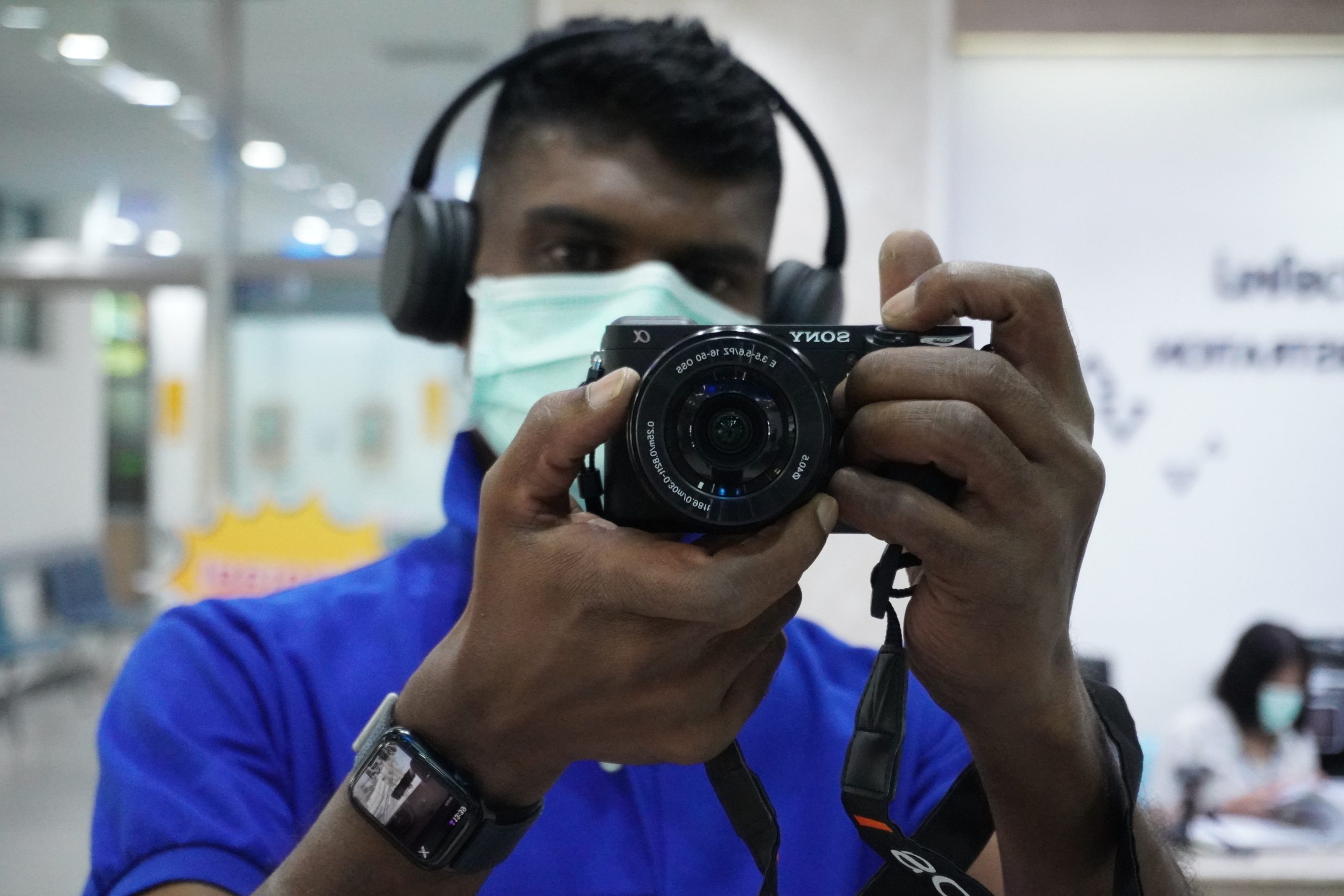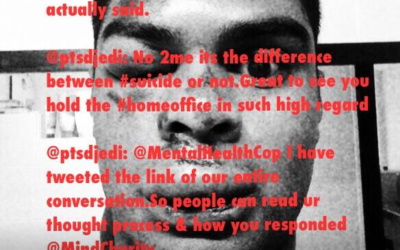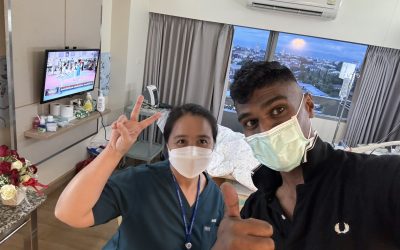Dear Mind Charity,
Following up on the extended phone conversation I had with your legal team a few weeks ago, I feel it’s necessary to formally express my deep concerns regarding Inspector Michael Brown’s online presence as Mental Health Cop and to seek clarification on Mind Charity’s involvement with him. There are several pressing issues here that warrant both transparency and a detailed response.
Inspector Brown’s rise as a self-styled expert in mental health within policing poses serious risks. While he may have positioned himself as an authority, his public statements frequently contradict the established guidelines of mental health care, particularly when it comes to dealing with vulnerable individuals in police custody. Most concerning is his suggestion that general practitioners (GPs) can serve as Forensic Medical Examiners (FMEs), an assertion that flies in the face of Home Office requirements. FMEs are specifically reserved for professionals with specialized training in both forensic medicine and psychiatry, fields far beyond the typical scope of a GP’s expertise. To claim otherwise is not just misleading but dangerous, especially when these professionals are tasked with assessing individuals in severe mental health crises.

The consequences of such misinformation can be deadly. Statistics from INQUEST reveal that 58% of deaths following police contact in the UK involve individuals with mental health issues. These are people often in acute psychiatric distress, yet they are left in the hands of professionals unqualified to handle these situations. It is within this troubling context that I experienced gross negligence firsthand.
In my case, I was subjected to a rushed and superficial mental health assessment by a GP, Dr. Lane, while in police custody at Fulham Police Station. Despite there being extensive documentation available that detailed the severity of my trauma—including reports from Heathrow Police, the Foreign Office under Jack Straw, the Japanese and Thai governments, and the Thai military—Dr. Lane made no attempt to consult this wealth of information. The police had access to this documentation for anywhere from three to six weeks prior to my arrest, yet despite this, they still failed to act on it.
Moreover, on the day of my assessment, I spent three hours at Wembley Police Station recounting all of this information to Sergeant Simon Krebs, clearly laying out the details of my involvement in the search and rescue efforts following the Boxing Day tsunami. As part of a small group of fifty to one hundred tourists, I was directly involved in the initial recovery operation, working alongside the Thai military to recover both bodies and survivors. The trauma from this experience is undeniable and has been corroborated by multiple governments. This information was further compounded by the fact that I had endured five years of NHS misdiagnosis, which had left my PTSD untreated. Despite this mountain of evidence, Dr. Lane’s assessment lasted a mere five to six minutes, during which he insulted me by stating that “anyone could Google buzzwords.” His failure to engage seriously with my case is not only negligent but demonstrates the dangerous level of unaccountability that GPs seem to operate under when assessing individuals in custody.
Dr. Lane’s lack of empathy was particularly shocking, given the extent of my trauma. As Dr. Jennifer Wild, my therapist during clinical trial treatment at Oxford University, pointed out to me: “Think about how few UK nationals have been exposed to the level of trauma that you’ve been through. How many have spent 24 hours on a deserted island with so much devastation? Probably less than 1,000, maybe 2,000, in a country of 67 million.” This wasn’t just a case of trauma—this was an extraordinary case of severe trauma. As Dr. Wild further emphasized, “This is like a terrorist attack, but even worse in some ways. In a terrorist attack, help usually arrives almost immediately. You had no help for 24 hours.” The lack of empathy from Dr. Lane, given the magnitude of what I had endured, was staggering.
Furthermore, Dr. Jennifer Wild testified in court regarding my PTSD and explicitly stated that the actions for which I was arrested were entirely symptomatic of someone who had been left untreated for PTSD, especially after going through what I had been through. Dr. Lane, had he been properly trained and engaged, would have recognized this and understood that my behaviors were akin to someone with Tourette syndrome being penalized for shouting. Instead, his dismissive attitude pushed me toward the brink of suicide.
To have a GP assess individuals in mental health crisis without specialized training is akin to sending an untrained GP to assess a chemotherapy patient and dismissing their symptoms as a common cold. Dr. Lane’s lack of empathy and refusal to engage meaningfully with the available evidence nearly cost me my life. The psychological harm inflicted by his dismissiveness illustrates the potentially fatal consequences of such misconduct.
My case was later assessed by Dr. Jennifer Wild, a leading PTSD expert at Oxford University. Over the course of three to four months, under clinical trial conditions, we explored the details of my trauma in forensic detail during Trauma-Focused Cognitive Behaviour Therapy (TF-CBT). Dr. Wild was shocked by the treatment I had endured—not just from the NHS, but also at the hands of the police and Dr. Lane. Her assessment further validated the extent of my trauma and the negligence I had suffered. Dr. Wild and I even discussed Dr. Lane’s actions, and her reaction highlighted the sheer injustice of the treatment I received.
Moreover, my case was significant enough to be featured on a BBC podcast, The Why Factor, where I spoke alongside Dr. Wild and Professor Simon Wessely, a leading military advisor on psychiatry. The podcast explored the impact of trauma across different cultures and showcased how deeply my PTSD had affected me. It’s telling that while top PTSD experts were validating my experience, Dr. Lane had dismissed me with a flippant remark about “Google buzzwords” only a year earlier.
Inspector Brown’s platform has only exacerbated the systemic issues within law enforcement’s handling of mental health crises. While his work could have been effective as an internal training program, it has instead spilled into the public domain, giving rise to unqualified influencers, such as AMHP fanboys, who are not equipped to discuss the nuances of mental health. These individuals perpetuate harmful misinformation, further marginalizing vulnerable people. Had Brown been more empathetic to the needs of the broader community, he would have realized that his approach was making the situation worse for the 98% of the population his work didn’t serve.

Furthermore, in London, 40.2% of the population identifies as part of an ethnic minority, while only 12.4% of the Metropolitan Police Service officers are from Black and minority ethnic backgrounds. This stark underrepresentation not only limits the police’s ability to build trust with marginalized communities but also highlights the severe lack of understanding of diverse mental health needs. The disparity is even more troubling when considering that ethnic minorities are disproportionately detained under the Mental Health Act, yet remain significantly underrepresented in key decision-making roles like Approved Mental Health Professionals (AMHPs). The AMHP workforce, consisting of only around 3,800 professionals across England, struggles to meet rising demands, and the lack of diversity only heightens the risk of biased or inadequate decision-making.
Given these concerns, I am seeking transparency from Mind Charity on several key points:
- Did Mind Charity coordinate with Inspector Brown before he launched his Mental Health Cop platform?
- Were you aware of the potential risks his public platform posed to vulnerable individuals?
- Has there been any feedback provided to West Midlands Police regarding the societal impact of his online activities and the rise of unqualified influencers?
As a respected organization, Mind Charity has a responsibility to ensure that mental health advocacy is accurate and responsible. Inspector Brown’s unregulated platform, with its potential to spread misinformation, is too dangerous to leave unchecked. Moreover, the erosion of trust between law enforcement and marginalized communities is already a pressing issue—an issue that Brown’s public presence is likely to exacerbate.
In closing, I want to stress that this is not just about poor judgment on the part of a few individuals. It is a question of ethics and responsibility. By allowing this type of unchecked behavior, Mind Charity risks aligning itself with a figure whose actions could have serious, life-threatening consequences for vulnerable individuals. I urge you to carefully reconsider any association with Inspector Brown and take immediate steps to address the concerns raised here.
I look forward to your detailed response. Together, we can ensure that mental health advocacy serves the needs of everyone—not just a small fraction of the population—and that those most at risk receive the informed, compassionate care they deserve.
Sincerely,
Sam Nilaweera
PTSDJedi.com





0 Comments